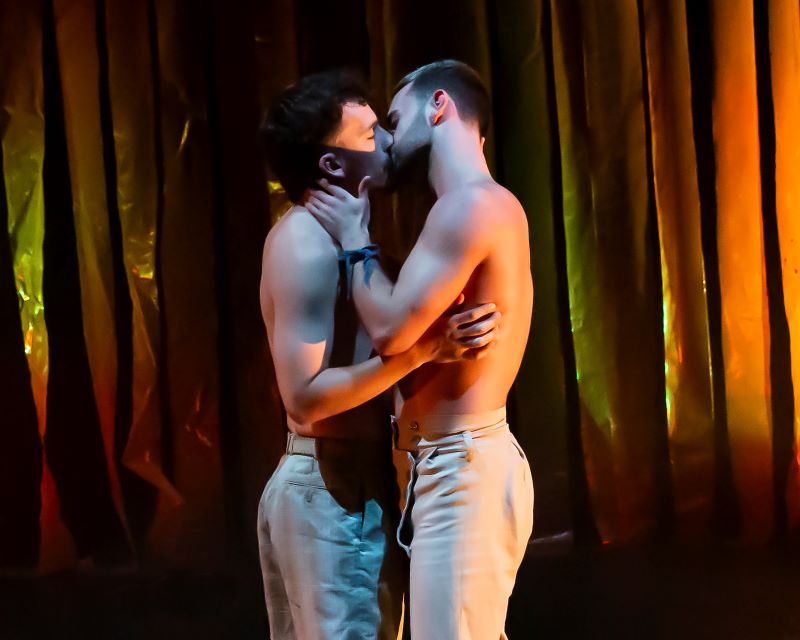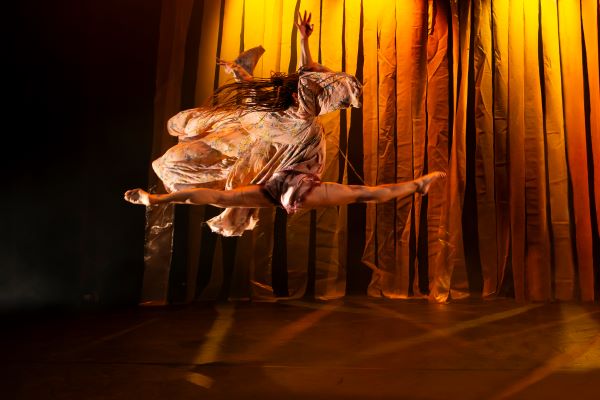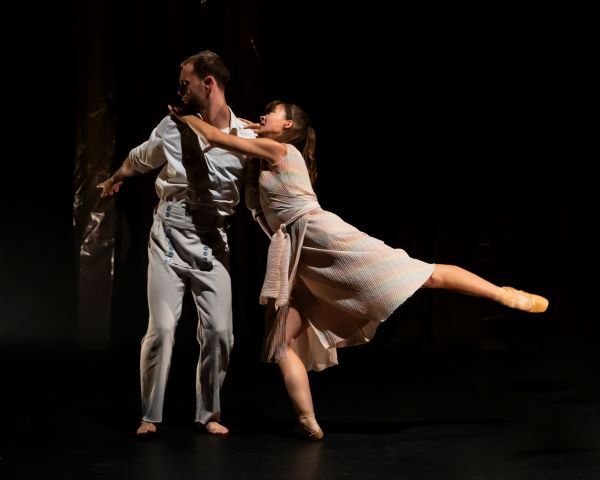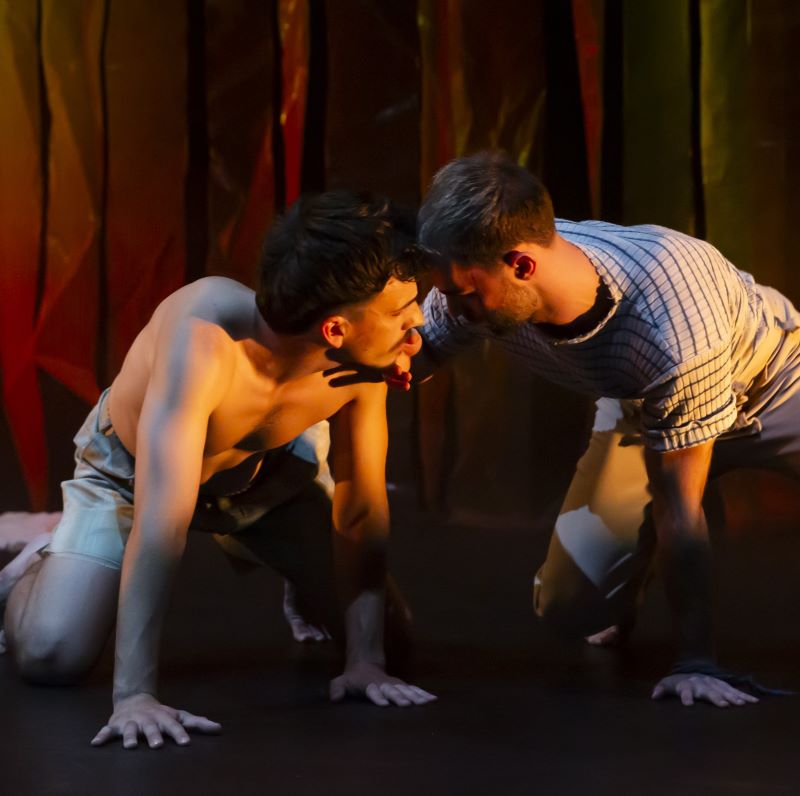By Spring Wise.
I expected to be able to write a somewhat narrative review of this show, being that it’s an adaptation of Madame Butterfly, and spoiler rules do not apply to 120 year old operas!
Mariposa, however, is something entirely its own.
Choreographer Carlos Pons Guerra sets his queer, transformational tragedy in post-revolution Cuba, with principal character Mariposa (Spanish for butterfly, and sometimes slang for queer men) a sex worker who falls in love with Western Sailor, Preston.
Their love affair begins tentatively, with tender longing and sometimes violent push-and-pull… beginning with an eerie dark sparse stage and shadows of secrecy, shame and jeopardy.
Harry Alexander is stunning in his treatment of Mariposa which truly brings the drama of opera to the dance. It’s breathtaking to watch him combine physical precision with devastatingly soft facial expression and tender responsive phrasing. It’s a rare and delicate masterpiece and I’m not sure how his body can convey so many things at once.
Pon Guerra – a gay man who essentially ran away to England from the Canary Islands for the freedom to dance – introduces the religion of Santeria, which travelled to Cuba from Africa centuries ago, as the agent of transformation in this story…. And I’m not going to tell you what that story is, but for me, it was so much more relatable and satisfying than Madame Butterfly. Absolutely no shade to Puccini, of course.

What I will tell you is that this is an important piece of work for 2024, a time when we seem determined to turn the clock back on gender equality, queer acceptance and trans rights. I wouldn’t describe this as a story about gender, but gender is used as an allegory for the sacrifices queer people have to make for acceptance and the binary dichotomies of belonging, and the resplendent golden deities of Ochun and Imie are, in my opinion, beautifully gender transcendent.
The show is advertised as suitable for ages 12+, but I would caution readers that the realities of colonial sex tourism are described in very visceral symbolism, which is essential to the story. Even for a young person with no dance vocabulary, I think they will easily understand the core of what is happening, which is a harrowing topic for an under-sixteen to come to grips with, in my opinion.
Madame Butterfly is a difficult opera for modern times, with its fetishisation of Japanese culture, but this reimagining manages to express the devastation colonisation brings without dehumanising or infantilising its victims.
Mariposa experiences all of Cio-Cio San’s innocent love, longing, vulnerability, hope, betrayal and heartbreak while still maintaining the complexities of animal sensuality and exhausted worldliness.

Costuming was beautifully balanced between practical realism and sumptuous glamour, with well-chosen fabrics expressing a simple but sinewy theme of cocooning and rebirth. Shimmering gold for spiritual iconography and pointe shoes as a painful metaphor for Western feminine conformity. Mariposa’s en pointe performances are exquisitely poignant, and the delicate frills of their transitionary clothing perfectly fragile. Preston’s American wife, Kate, performs her staid and technically perfect motions in a perfectly ordinary white dress to match Preston’s perfectly repressed new life.
If you can see this show, you must. It will break your heart, but the very final few moments will repair it in gold.
- Tickets for Carlos Pons Guerra’s Mariposa (22 – 23 November 2024) are on sale at mayflower.org.uk or 02380 711811.
- In Common is not for profit. We rely on donations from readers to keep the site running. Could you help to support us for as little as 25p a week? Please help us to carry on offering independent grass roots media. Visit: https://www.patreon.com/incommonsoton

You may also like:
Interview: Choreographer of Mariposa, Carlos Pons Guerra, talks about the upcoming show

